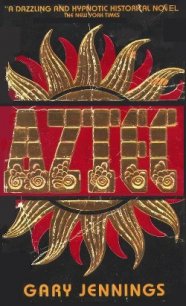Perfume. The story of a murderer - Suskind Patrick (читать книги онлайн бесплатно полностью без сокращений .txt) 📗
Man’s misfortune stems from the fact that he does not want to stay in the room where he belongs. Pascal said that. And Pascal was a great man, a Frangipani of the intellect, a real craftsman, so to speak, and no one wants one of those anymore. People read incendiary books now by Huguenots or Englishmen. Or they write tracts or so-called scientific masterpieces that put anything and everything in question. Nothing is supposed to be right anymore, suddenly everything ought to be different. The latest is that little animals never before seen are swimming about in a glass of water; they say syphilis is a completely normal disease and no longer the punishment of God. God didn’t make the world in seven days, it’s said, but over millions of years, if it was He at all. Savages are human beings like us; we raise our children wrong; and the earth is no longer round like it was, but flat on the top and bottom like a melon-as if that made a damn bit of difference! In every field, people question and bore and scrutinize and pry and dabble with experiments. It’s no longer enough for a man to say that something is so or how it is so-everything now has to be proven besides, preferably with witnesses and numbers and one or another of these ridiculous experiments. These Diderots and d’Alemberts and Voltaires and Rousseaus or whatever names these scribblers have-there are even clerics among them and gentlemen of noble birth!-they’ve finally managed to infect the whole society with their perfidious fidgets, with their sheer delight in discontent and their unwillingness to be satisfied with anything in this world, in short, with the boundless chaos that reigns inside their own heads!
Wherever you looked, hectic excitement. People reading books, even women. Priests dawdling in coffeehouses. And if the police intervened and stuck one of the chief scoundrels in prison, publishers howled and submitted petitions, ladies and gentlemen of the highest rank used their influence, and within a couple of weeks he was set free or allowed out of the country, from where he went right on with his unconscionable pamphleteering. In the salons people chattered about nothing but the orbits of comets and expeditions, about leverage and Newton, about building canals, the circulation of the blood, and the diameter of the earth.
The king himself had had them demonstrate some sort of newfangled nonsense, a kind of artificial thunderstorm they called electricity. With the whole court looking on, some fellow rubbed a bottle, and it gave off a spark, and His Majesty, so it was said, appeared deeply impressed. Unthinkable! that his great-grandfather, the truly great Louis, under whose beneficent reign Baldini had been lucky enough to have lived for many years, would have allowed such a ridiculous demonstration in his presence. But that was the temper of the times, and it would all come to a bad end.
When, without the least embarrassment, people could brazenly call into question the authority of God’s Church; when they could speak of the monarchy-equally a creature of God’s grace-and the sacred person of the king himself as if they were both simply interchangeable items in a catalog of various forms of government to be selected on a whim; when they had the ultimate audacity-and have it they did-to describe God Himself, the Almighty, Very God of Very God, as dispensable and to maintain in all earnestness that order, morals, and happiness on this earth could be conceived of without Him, purely as matters of man’s inherent morality and reason… God, good God!-then you needn’t wonder that everything was turned upside down, that morals had degenerated, and that humankind had brought down upon itself the judgment of Him whom it denied. It would come to a bad end. The great comet of 1681-they had mocked it, calling it a mere clump of stars, while in truth it was an omen sent by God in warning, for it had portended, as was clear by now, a century of decline and disintegration, ending in the spiritual, political, and religious quagmire that man had created for himself, into which he would one day sink and where only glossy, stinking swamp flowers flourished, like Pelissier himself!
Baidini stood at the window, an old man, and gazed malevolently at the sun angled above the river. Barges emerged beneath him and slid slowly to the west, toward the Pont-Neuf and the quay below the galleries of the Louvre. No one poled barges against the current here, for that they used the channel on the other side of the island. Here everything flowed away from you-the empty and the heavily laden ships, the rowboats, and the flat-bottomed punts of the fishermen, the dirty brown and the golden-curled water— everything flowed away, slowly, broadly, and inevitably. And if Baldini looked directly below him, straight down the wall, it seemed to him as if the flowing water were sucking the foundations of the bridge with it, and he grew dizzy.
He had made a mistake buying a house on the bridge, and a second when he selected one on the western side. Because constantly before his eyes now was a river flowing from him; and it was as if he himself and his house and the wealth he had accumulated over many decades were flowing away like the river, while he was too old and too weak to oppose the powerful current. Sometimes when he had business on the left bank, in the quarter of the Sorbonne or around Saint-Sulpice, he would not walk across the island and the Pont-Saint-Michel, but would take the longer way across the Pont-Neuf, for it was a bridge without buildings. And then he would stand at the eastern parapet and gaze up the river, just for once to see everything flowing toward him; and for a few moments he basked in the notion that his life had been turned around, that his business was prospering, his family thriving, that women threw themselves at him, that his own life, instead of dwindling away, was growing and growing.
But then, if he lifted his gaze the least bit, he could see his own house, tall and spindly and fragile, several hundred yards away on the Pont-au-Change, and he saw the window of his study on the second floor and saw himself standing there at the window, saw himself looking out at the river and watching the water flow away, just as now. And then the beautiful dream would vanish, and Baldini would turn away from where he had stood on the Pont-Neuf, more despondent than before-as despondent as he was now, turning away from the window and taking his seat at his desk.
Twelve
BEFORE HIM stood the flacon with Peiissier’s perfume. Glistening golden brown in the sunlight, the liquid was clear, not clouded in the least. It looked totally innocent, like a light tea-and yet contained, in addition to four-fifths alcohol, one-fifth of a mysterious mixture that could set a whole city trembling with excitement. The mixture, moreover, might consist of three or thirty different ingredients, prepared from among countless possibilities in very precise proportions to one another. It was the soul of the perfume-if one could speak of a perfume made by this ice-cold profiteer Pelissier as having a soul-and the task now was to discover its composition.
Baldini blew his nose carefully and pulled down the blind at the window, since direct sunlight was harmful to every artificial scent or refined concentration of odors. He pulled a fresh white lace handkerchief out of a desk drawer and unfolded it. Then, holding his head far back and pinching his nostrils together, he opened the flacon with a gentle turn of the stopper. He did not want, for God’s sake, to get a premature olfactory sensation directly from the bottle. Perfume must be smelled in its efflorescent, gaseous state, never as a concentrate. He sprinkled a few drops onto the handkerchief, waved it in the air to drive off the alcohol, and then held it to his nose. In three short, jerky tugs, he snatched up the scent as if it were a powder, immediately blew it out again, fanned himself, took another sniff in waltz time, and finally drew one long, deep breath, which he then exhaled slowly with several pauses, as if letting it slide down a long, gently sloping staircase. He tossed the handkerchief onto his desk and fell back into his armchair.




